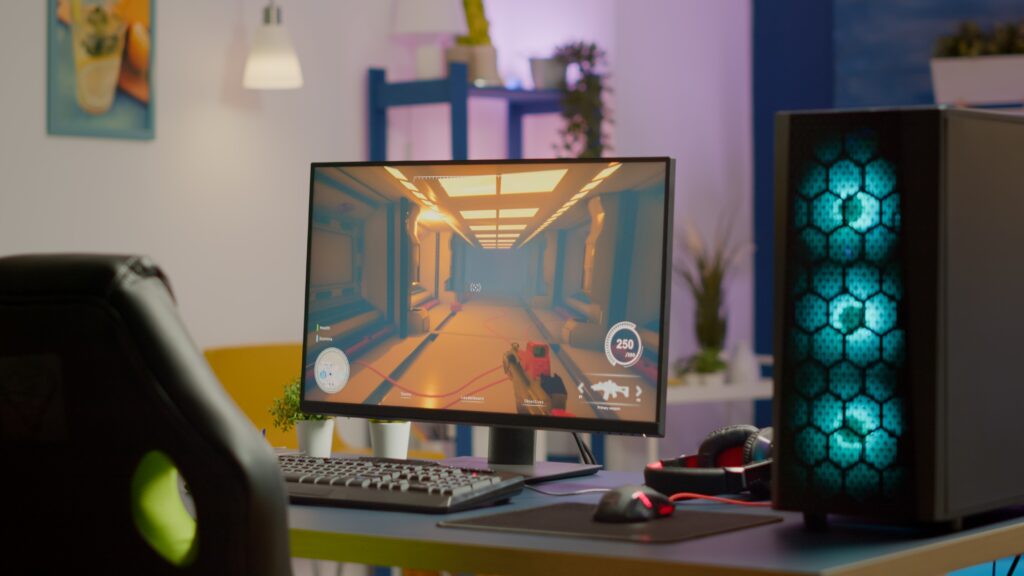For decades, video games have been a subject of controversy, often criticized for promoting sedentary behavior or even fostering aggression. However, emerging scientific research paints a different picture—one where gaming serves as a powerful tool for cognitive enhancement. Far from being just a leisure activity, video games have been shown to improve memory, problem-solving, multitasking, and even social intelligence.

This article explores the science behind gaming’s cognitive benefits, dispels common myths, and provides actionable insights for gamers, parents, and educators. Whether you’re a casual player, a competitive esports enthusiast, or someone skeptical of gaming’s value, this deep dive will help you understand how interactive digital experiences can sharpen the mind.
How Gaming Enhances Memory: From Short-Term Recall to Long-Term Retention
The Science Behind Gaming and Memory
Memory is a fundamental cognitive function, and video games—particularly those requiring strategy, quick decision-making, and pattern recognition—have been proven to strengthen it.
1. Working Memory Improvements
Working memory refers to the brain’s ability to hold and manipulate information temporarily. Fast-paced games, such as first-person shooters (FPS) and real-time strategy (RTS) games, force players to track multiple variables simultaneously.
- A 2020 study published in Nature Human Behaviour found that gamers who played action-based games for at least 30 minutes a day demonstrated a 15-20% improvement in working memory tasks compared to non-gamers.
- Researchers attribute this enhancement to the constant need to monitor enemy positions, ammunition levels, and mission objectives, which trains the brain to process information more efficiently.
2. Long-Term Memory and Narrative Recall
Story-driven games, such as The Witcher 3 or The Last of Us, require players to remember intricate plot details, character backstories, and quest objectives over extended periods.
- A study from the University of California, Irvine, found that gamers who engaged in narrative-heavy RPGs performed better in long-term memory tests than those who played non-narrative games.
- The emotional engagement in these stories also strengthens episodic memory, the type of memory tied to personal experiences and events.
3. Spatial Memory and Navigation Skills
Open-world games like The Legend of Zelda: Breath of the Wild or Grand Theft Auto V demand strong spatial awareness. Players must memorize maps, landmarks, and shortcuts to navigate efficiently.
- Research from the Max Planck Institute for Human Development revealed that gamers who regularly played 3D exploration games had a larger hippocampus—the brain region responsible for spatial memory—compared to non-gamers.
- This skill translates to real-world navigation, such as driving or reading complex floor plans.
Problem-Solving and Strategic Thinking: How Games Train the Brain to Think Critically
The Cognitive Demands of Different Game Genres
Not all games are created equal when it comes to cognitive benefits. Some genres are particularly effective at enhancing problem-solving skills.
1. Real-Time Strategy (RTS) Games and Cognitive Flexibility
Games like StarCraft II and Age of Empires require players to manage resources, plan attacks, and adapt to opponents’ strategies in real time.
- A study from Queen Mary University of London found that RTS players exhibited faster decision-making and better multitasking abilities than non-gamers.
- These skills are directly applicable to high-pressure professions, such as emergency response, stock trading, and surgical procedures.
2. Puzzle Games and Logical Reasoning
Titles like Portal and Tetris challenge players to think critically and solve increasingly complex problems.
- Neuroscientists at the University of California, Berkeley, discovered that regular Tetris players showed improved pattern recognition and spatial reasoning, skills crucial in fields like mathematics and engineering.
- Portal, with its physics-based puzzles, enhances players’ ability to think in three dimensions—a skill useful in architecture and mechanical design.
3. Open-World Games and Creativity
Games like Minecraft and Terraria encourage players to experiment, build, and innovate.
- A study published in Creativity Research Journal found that children who played sandbox games scored higher on creativity tests than those who didn’t.
- The freedom to design structures, craft tools, and explore without strict objectives fosters divergent thinking—a key component of innovation.
Multitasking and Attention Control: How Gaming Sharpens Focus
The Myth of Gaming and Shortened Attention Spans
A common misconception is that gaming leads to attention deficits. However, research suggests the opposite—certain games actually improve focus and task-switching abilities.
1. Enhanced Visual Attention
Fast-paced action games, such as Call of Duty and Apex Legends, require players to track multiple moving targets while ignoring distractions.
- A study in Psychological Science found that action gamers had 30% better visual attention than non-gamers.
- This skill is particularly useful in professions requiring high situational awareness, such as air traffic control and surgical medicine.
2. Improved Task-Switching Efficiency
Games that require juggling multiple objectives—such as League of Legends (managing team fights, objectives, and resources) or The Sims (balancing needs, careers, and relationships)—train the brain to switch between tasks seamlessly.
- Neuroscientists at the University of Geneva found that gamers outperformed non-gamers in cognitive flexibility tests, demonstrating faster reaction times and fewer errors when shifting between different tasks.
3. Reduced Cognitive Decline in Older Adults
Contrary to the belief that gaming is only for the young, studies show that older adults who play brain-training games experience slower cognitive decline.
- A 2019 study in Frontiers in Aging Neuroscience found that seniors who played Brain Age or similar puzzle games showed improved memory and processing speed compared to non-gaming peers.
Debunking Myths: Separating Fact from Fiction on Gaming and Cognition
Myth 1: All Games Offer the Same Cognitive Benefits
- Reality: Not all games are equally beneficial. Fast-paced action games improve reflexes, while strategy games enhance planning skills. Passive games (like idle clickers) offer minimal cognitive stimulation.
Myth 2: Gaming Is Just Mindless Entertainment
- Reality: Many games require deep strategic thinking, teamwork, and adaptability—skills that translate to real-world problem-solving.
Myth 3: Gaming Causes Attention Disorders
- Reality: While excessive gaming can lead to neglect of other responsibilities, moderate gaming (1-2 hours daily) has been shown to improve focus and attention control.
Myth 4: Only Violent Games Have Cognitive Benefits
- Reality: Non-violent games (Tetris, Portal, Minecraft) provide equal or greater cognitive benefits without promoting aggression.
FAQs: Answering Common Questions About Gaming and Cognitive Skills
1. Can gaming improve IQ?
Some studies suggest that strategic gaming can lead to slight IQ increases by enhancing problem-solving and memory. However, genetics, education, and other factors play larger roles.
2. How much gaming is beneficial?
Research suggests 1-2 hours per day for cognitive benefits without negative side effects. Excessive gaming (4+ hours daily) may lead to diminishing returns.
3. Are mobile games as effective as PC/console games?
Yes, if they involve strategy, memory, or problem-solving (Chess, Monument Valley). Casual mobile games (like Candy Crush) offer fewer cognitive benefits.
4. Do violent games improve cognition?
Some action games enhance reflexes and attention, but non-violent alternatives (Celeste, Stardew Valley) provide similar benefits without aggression risks.
5. Can gaming help with ADHD?
Some studies suggest that action games may improve attention in ADHD individuals, but moderation is key.
Conclusion: Harnessing the Cognitive Power of Gaming
The evidence is clear—video games, when chosen wisely and played in moderation, can serve as powerful cognitive training tools. From boosting memory and problem-solving to enhancing multitasking and creativity, gaming offers measurable mental benefits.
For parents, this means selecting high-quality, thought-provoking games for children. For educators, it suggests incorporating game-based learning into curricula. And for gamers, it validates that their hobby is more than just entertainment—it’s a way to sharpen the mind.
The next time someone claims that gaming is a waste of time, you’ll have the science to prove otherwise. So pick up that controller, fire up your favorite brain-boosting game, and level up your cognitive skills.

